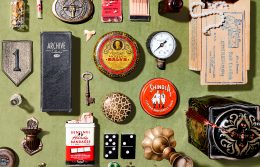Hack Your House Cleaning With These 6 Pantry Items
These household items will save the day time and time again — and will save you the cost of dozens of different cleaning supplies.
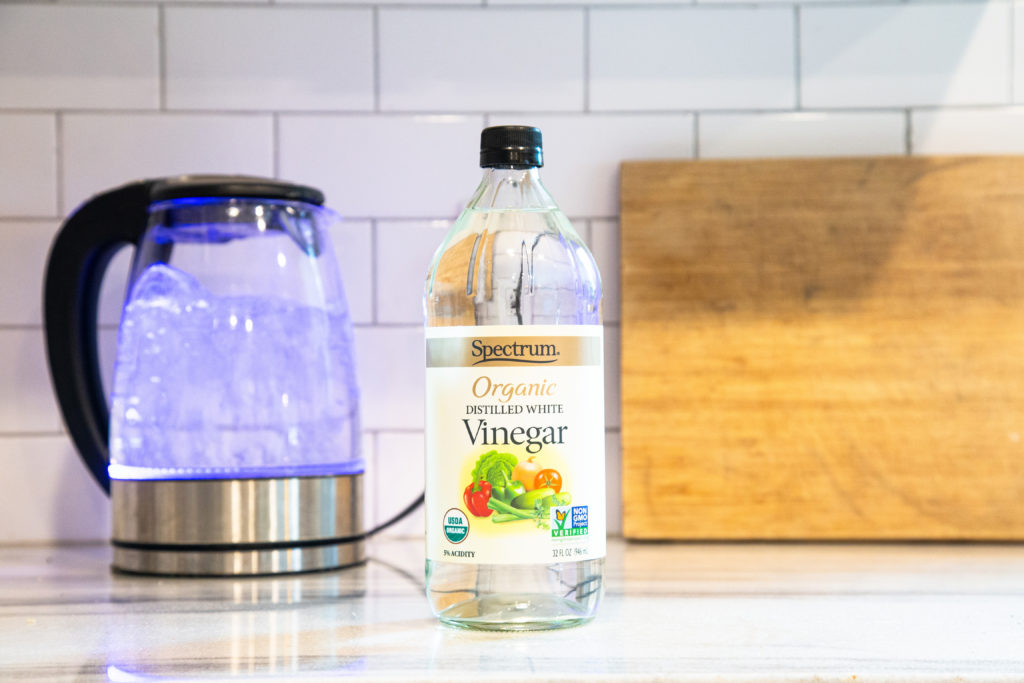
White Vinegar
White vinegar is truly the white knight of the kitchen that can vanquish any foe. It disinfects without bleach, keeping your kitchen food-safe; it dissolves the gluiest gunk from surfaces, dishes, and appliances; it melts away hard water mineral buildup (useful in the state with the sixth-hardest water), defogging glassware and undimming faucets. It even cleans the things that clean, such as dishwashers and washing machines. No task is too big or too small for the humble-yet-mighty vinegar bottle twinkling in the back of your pantry.
- Blenders and food processors: Blitz with a 1:1 solution of water and vinegar to get out food, stains, and smells before washing as normal.
- Coffee makers and tea kettles: To descale, empty then fill the water reservoir or kettle with a 1:1 solution of water and vinegar and run a cycle. Pour it out and rinse thoroughly, then run a water cycle until the vinegar smell is gone.
- Dishwashers: Pour 1 cup of vinegar on the floor of the dishwasher and run an empty cycle to loosen mineral deposits.
- Floors: Mop with a 1:1 solution of vinegar and water to lift grease and dirt.
- Glasses: Minerals in hard water can cloud glasses when washed; soak your glasses in vinegar to dissolve minerals, then wash as normal.
- Microwaves: Microwave a 1:1 solution of vinegar and water in a microwave-safe bowl for 5 minutes to steam out gunk, then wipe clean.
- Pots and pans: Boil vinegar and water for a few minutes to dissolve grease and stains, then wash as normal.
- Screens: Dip a microfiber cloth in a 1:1 solution of vinegar and distilled water and wring it out. Wipe your phone and computer screens with the damp cloth; buff dry with a dry cloth.
- Sheet pans: To soak more effectively, mix ½ cup of baking soda and ½ cup of white vinegar with hot water in a plugged sink to submerge pans; soak for 30 minutes to 1 hour, then scrub away stuck food and stains.
- Stainless steel sinks and appliances: To keep appliances and surfaces food-safe, spray with a 1:1 solution of vinegar and water to disinfect without bleach, then buff out with a dry microfiber cloth.
- Stovetops: Using your spray as above, let the solution sit for 10 minutes to cut through grease, then scrub with soapy water.
- Washing machines: Clean out buildup of laundry soils, detergent, hard water minerals, mold, and mildew.
- For front-loading washers: Spray gasket with vinegar and wipe down with a microfiber cloth. (This area can accumulate water, hair, scum, and mildew). Add 2 cups of vinegar to the detergent dispenser and run a cycle on the highest level and hottest water temperature. Add ½ cup of baking soda to the drum and run another cycle. Wipe the drum with a damp microfiber cloth and wipe down the front.
- For top-loading washers: Add 4 cups of white vinegar to a wash cycle and run at the highest level and hottest water temperature. After the cycle starts, pause and let sit for 1 hour. Wipe down the top with a microfiber cloth dipped in the hot vinegar water, clean fabric softener and bleach dispensers, and the finish cycle. Add 1 cup of baking soda and run another cycle. Wipe the inside with a microfiber cloth to remove scum. Prevent mildew and mold by leaving the lid open when not in use.
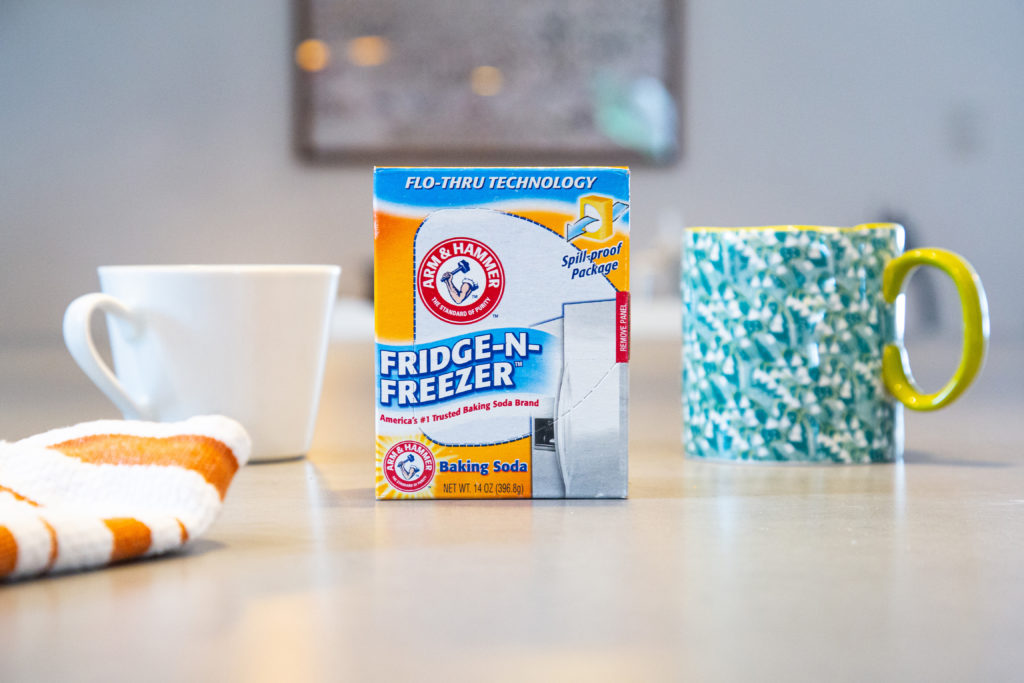
Baking Soda
Medieval people used to hold sachets of flowers and spices under their noses to avoid the smells of city life. If someone ever figures out time traveling, they could make a killing with baking soda. Baking soda can clean, refresh, and deodorize almost anything: dishwashers and sponges, garbage disposals and drains, mattresses and rugs, microwaves and mugs, and even toys — which are (fun fact) some of the dirtiest things in your home. It can de-scum your bathroom and polish your silver. What more could you want? Besides a time machine.
- Bathroom: Sprinkle baking soda on a wet sponge and scrub to remove soap scum from showers, baths, and sinks.
- Brushes and combs: Soak overnight in 1 cup of warm water and 1 teaspoon of baking soda.
- Dishwashers: Sprinkle the bottom of your dishwasher with baking soda to help freshen and remove stains; run as usual.
- Drains: Pour ½ cup of baking soda down the drain followed by ½ cup of vinegar; let it fizz, then pour in 6 cups of hot water.
- Floors: Mop with ½ cup of baking soda added to your bucket of warm water.
- Garbage disposal: Pour baking soda slowly down the drain while running warm tap water to refresh.
- Laundry: Add ½ cup of baking soda to a load to brighten clothes and remove stains.
- Mattress: Vacuum your mattress. Sprinkle with baking soda and rub it in, then let it sit for 30 minutes before vacuuming it up. This will freshen both your mattress and your vacuum (and it can also be used for rugs).
- Microwave: Apply baking soda to a damp sponge and scrub out stuck-on food.
- Mugs: Get rid of tea and coffee stains by sprinkling in baking soda, adding just enough water to form a paste, then rinsing out and washing away the stains.
- Sheets: Add ½ cup of baking soda directly to your laundry drum and add vinegar in the fabric softener dispenser to freshen sheets.
- Silver Jewelry: Polish silver with a 1:1 mixture of baking soda and salt; find full instructions here.
- Sponges: Soak sponges in in ¼ cup of baking soda dissolved in 4 cups of water to clean.
- Toys: To clean and refresh toys, dissolve ¼ cup of baking soda in 4 cups of water, spray onto toys, then rinse and dry.
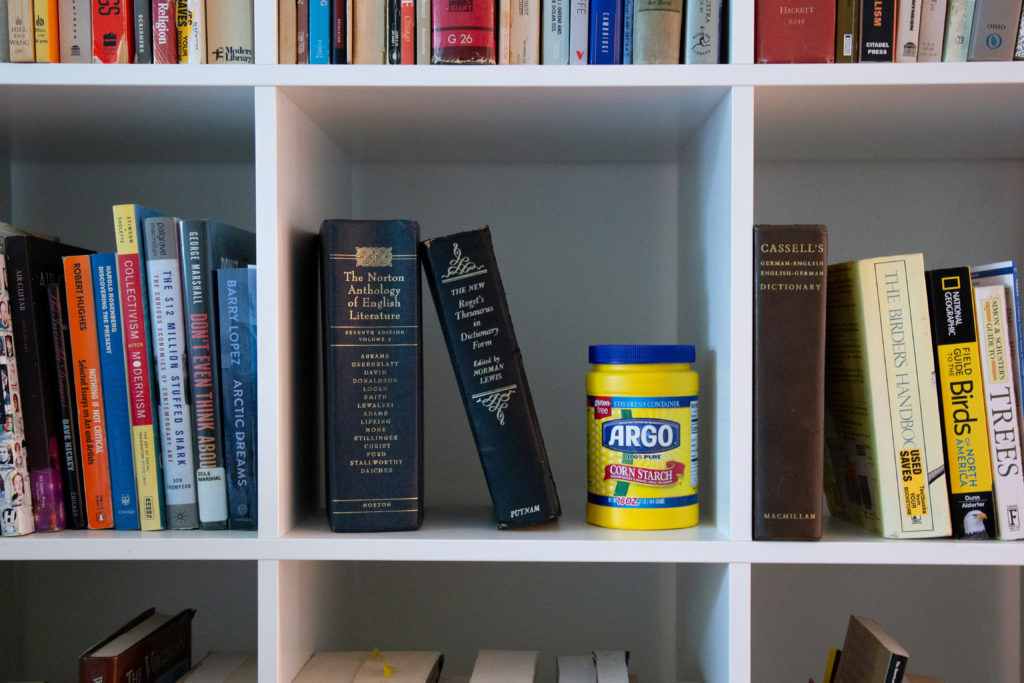
Cornstarch
Consummate kitchen thickener and friend to roux, stews, and stir-fries, cornstarch typically sits unused when you have no sauces to stiffen. But it could be doing so much more — like shaking mildew and must out of beloved books or dirt out of well-worn stuffed animals; polishing windows and wood; scrubbing stains from pots and pans and walls; detangling knots, shoelaces, and even pet fur; unsticking rubber gloves and deodorizing smelly shoes. Time to get this MVP off the bench.
- Books: Sprinkle mildewy and musty pages with cornstarch. Let rest overnight, then shake out or vacuum if necessary.
- Pet fur: Detangle fur by sprinkling on baking soda to help you brush it out. (This also helps you untangle shoelace knots.)
- Pots and pans: Create a nonabrasive scrub with a 1:2 mixture of cornstarch and water to get stains and burns out of pots and pans.
- Rubber gloves: Sprinkle rubber gloves with cornstarch before putting them on to prevent dampness and sticking.
- Shoes: Sprinkle cornstarch in shoes for a natural deodorizer and to absorb moisture.
- Stuffed animals: Shake stuffed animals in a bag with cornstarch to loosen dirt particles and absorb grease; vacuum or shake out outdoors.
- Walls: Rub away grease stains with cornstarch on a cotton ball.
- Water stains: Make a gel with vinegar to dissolve hard minerals.
- Windows: Mix 1 tablespoon of cornstarch, ¼ cup of alcohol, ¼ cup of white vinegar, and 2 cups of warm water in a spray bottle to clean and shine windows.
- Wood: Spray a 1:1 solution of cornstarch and water and wipe with a microfiber cloth.
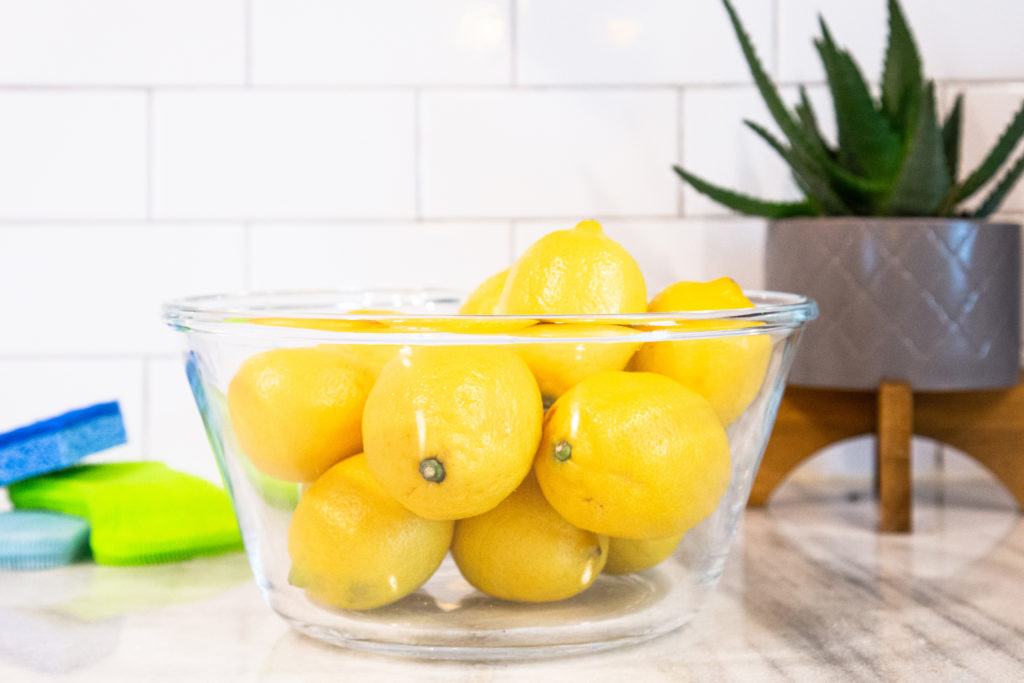
Lemons
We all know about feeding lemons to the garbage disposal monster. But did you know you can throw them in your dishwasher to improve shine? Lemon juice unstains plastic; lemon rinds polish faucets and hardware; lemon water steams odors and grime out of microwaves and ovens; lemons de-rust knives and de-cheese graters and so much more. Best of all, adding lemon to your vinegar-based cleaning hacks will neutralize the smell.
- Dishwashers: Throw lemon wedges into your next cycle for extra shine.
- Faucets and hardware: Polish andremove hard water mineral deposits with lemon juice; soak for 10-15 minutes, then wipe off.
- Garbage disposal: Run lemon rinds through your garbage disposal to eliminate odors.
- Graters: Wipe graters with lemon before washing to loosen debris.
- Grout: Spray lemon juice on grout, let sit for 10 minutes, then scrub off to remove discoloration.
- Knives: Remove rust by scrubbing with lemon.
- Microwave: To deodorize, boil ¼ cup of lemon juice and 2 cups of water in a glass container in the microwave; let steam for 5 minutes, then remove and wipe down your microwave.
- Oven: Bake a dish of water and lemon juice for 30 minutes at 250 F; when the oven is cool, sponge away grime.
- Plastic containers: Rub lemon juice on stains and let sit for 15 minutes, then rinse.
- Vinegar: Neutralize smell by adding lemon juice to any of your vinegar cleaning hacks.
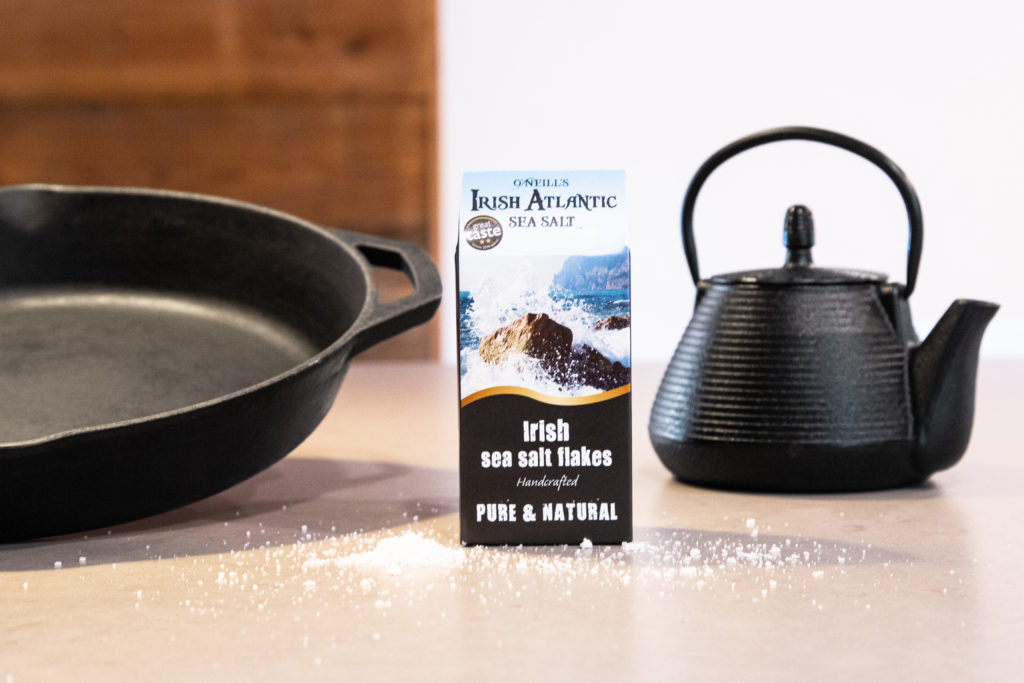
Coarse Sea Salt
There’s a reason salt scrubs are so popular. Salt is an amazing abrasive that scours clean everything from wood cutting boards to cast-iron skillets. Salt water is a cure-all that can both ease congestion when gargled and dislodge scum from flower vases when swirled around (let’s not think about that too deeply).
- Cast-iron skillets: Sprinkle salt on a dry skillet and scour using a paper towel to get rid of rust and grime.
- Flower vases: To get rid of scum, fill a vase with warm water and 1/3 cup of salt; let sit for 5 minutes, swirl to dislodge scum, then rinse. (You can also add a pinch of salt to water to keep flowers fresh longer.)
- Ovens: If filling bubbles over in the oven, sprinkle a handful of salt to the spill; it’ll form a crust and be easier to clean up when cooled.
- Silver: Sprinkle 1 tablespoon each of salt and baking soda into a glass dish; add ½ cup of vinegar and 1 cup of boiling water; place silver in a single layer and soak for 30 seconds, then buff dry.
- Wooden cutting boards: Dip ½ a lemon in salt and scrub cutting board to freshen; rinse and wipe dry.
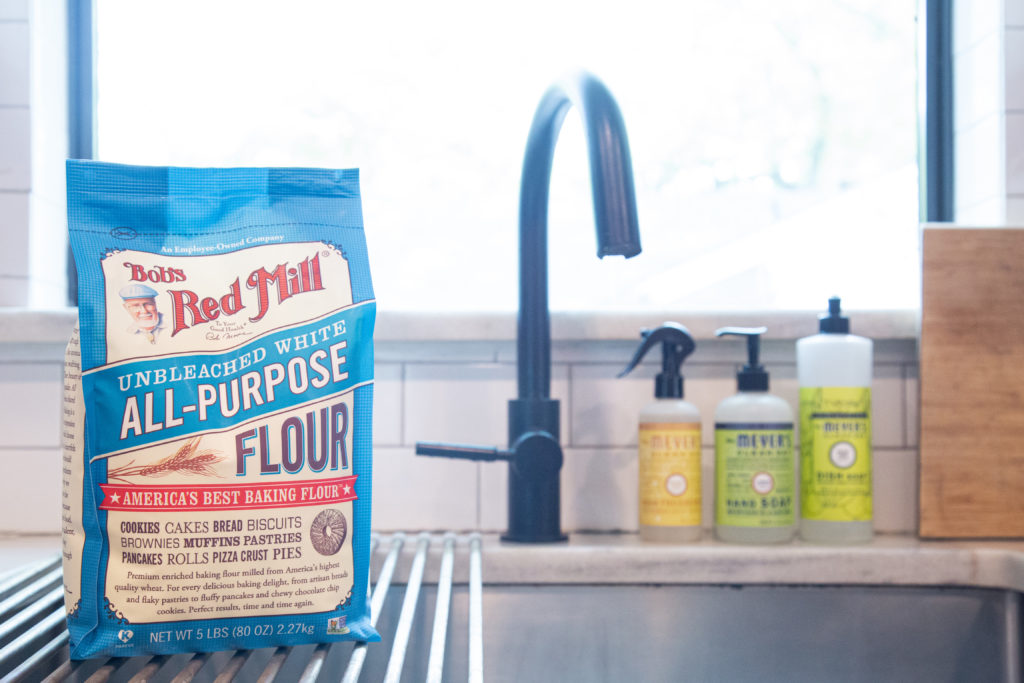
Flour
Flour makes vastly varied dishes, so it should be no surprise that it also works such widely varied wonders as polishing brass and copper, absorbing spills, shaking oils out of playing cards, and forming a pantry border that ants simply won’t cross.
- Brass and copper: Make a 1:1:1 paste of flour, salt, and vinegar and spread on to brass or copper to polish; let dry, then buff off with a dry cloth.
- Cards: Refresh playing cards by shaking them in a bag of flour; simply shuffle them out to remove the flour.
- Pantry shelves: Line the backs of shelves and anywhere ants enter with a line of salt; they won’t cross over the line.
- Spills: Sprinkle flour over oil spills to absorb, then simply sweep up.
- Stainless steel sinks: Clean, your sink, let it dry, then sprinkle with flour; rub with a paper towel to pick up grime from the grooves.
BONUS: Unclog drains with yogurt: Pour 1 cup of plain yogurt down the drain and let sit overnight; pour in a kettle of boiling water; the enzymes in the yogurt will dissolve the clog-causing sludge so the water can rinse it away.
Find out just how often to clean everything with this annual cleaning calendar.
© 2022 Texas Farm Bureau Insurance


